March Break Program for Black Youth | March 10 - 12, 2025
Experience student life at the University of Toronto and explore the field of kinesiology, where health and physical activity intersect!
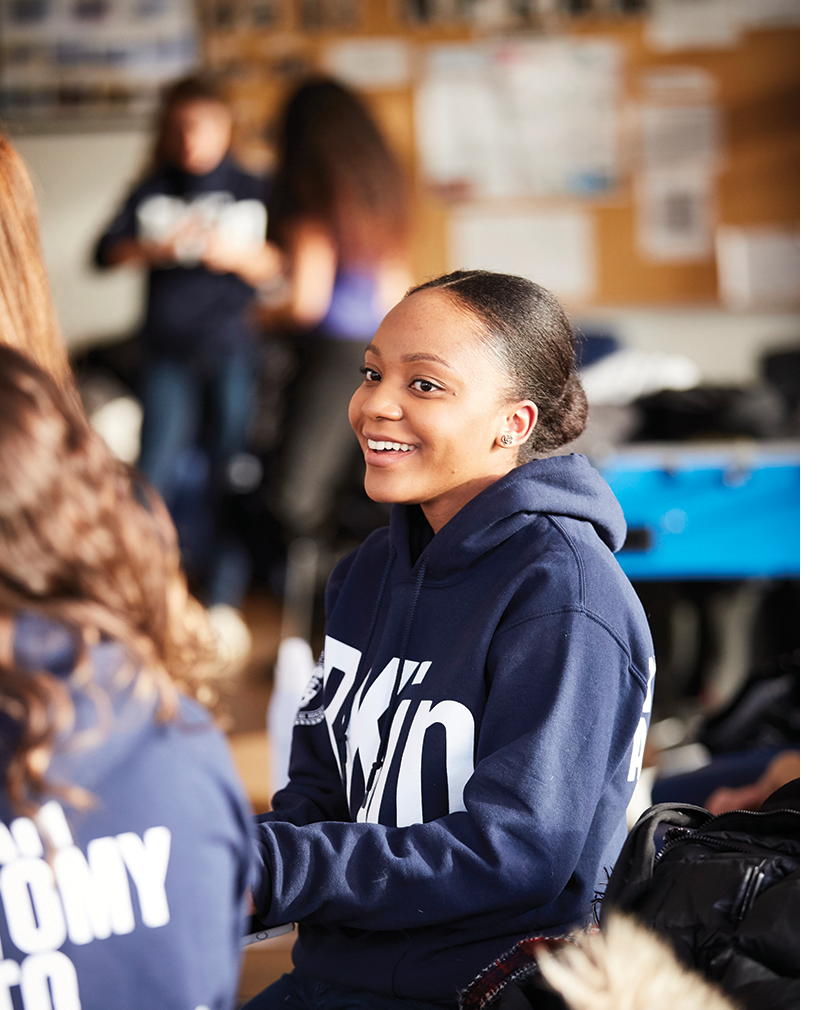
Spend time immersed at the University of Toronto and discover what it's like to be a student at the Faculty of Kinesiology & Physical Education (KPE). This program will run from Monday March 10th to Wednesday March 12th.
• Learn all about the exciting field of kinesiology through interactive workshops and activities
• Connect with staff and faculty members in the Faculty of Kinesiology & Physical Education
• Meet and be mentored by Black and racialized students in the Bachelor of Kinesiology (BKin) program
• Explore career paths and graduate level studies available with a bachelor of kinesiology degree
• 25 funded spaces available, including overnight accommodations at a hotel and meals
Eligibility
The Reach Ahead to Kinesiology March Break Program for Black Youth is open to:
- Black youth aged 15 – 17 who are currently enrolled in grade 10 or 11 at a high school within the Greater Toronto Area (GTA), or who currently reside in the GTA. (The GTA includes Toronto, Durham, Halton, Peel, and York.) [Note that students in grades 9 or 12 are not eligible];
- Students who are interested in the study of health, sports and recreation, physical activity, and/or movement are encouraged to apply;
- Students must agree to attend the program every day, be on time, follow the program guidelines, and abide by the student code of conduct.
- The University has paused the requirement to be fully vaccinated. Please note this requirement may be reinstated on short notice should public health conditions or guidance change.
We encourage a diverse pool of applicants, which includes Black students who may also identify as being disabled/having a disability, a member of the 2SLGBTQIA+ community, a member of a minoritized faith group, economically disadvantaged, Indigenous, or another marginalized community.
Applicants aren't required to be skilled in athleticism, as there are many ways to approach the study of kinesiology!
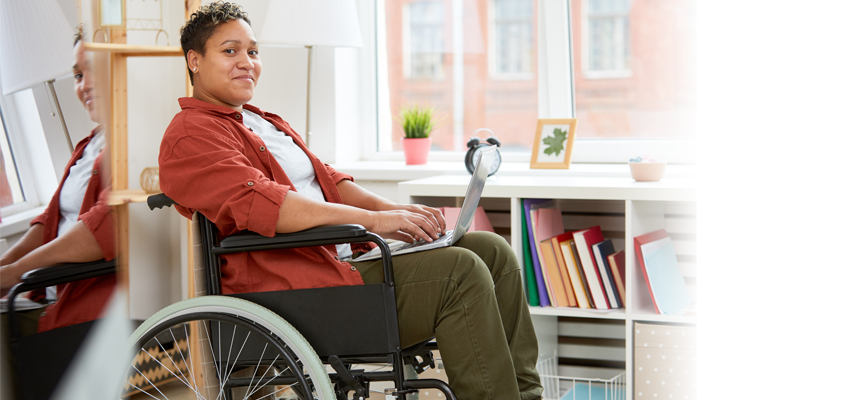
How To Apply
Students must complete our Application Form. The Reach Ahead to Kinesiology Program applications are closed.
Upon acceptance, you will receive (via email):
- A letter of acceptance to confirm your participation
- A full registration package to complete, including:
- Registration Package Checklist
- Program Information/Objectives
- Parental/Guardian Information and Consent Forms
- Student Medical Information
- Student Transportation Information
- Photo Release Form
- A program agenda and itinerary
- Directions
- Accommodation Information
- Packing List
Contact Us
Questions? Please contact us by email at reachahead.kpe@utoronto.ca.
Program Details
Acceptance Criteria
In the case that there are more applicants than the allotted 25 spaces, selections will be made based on the following scoring rubric:
| Acceptance Criteria | 4-5 Points | 2-3 Points | 0-1 Points |
| Personal | The applicant provided a clear picture of their personality, interests, and values. They richly shared what is important to them by sharing their hobbies, passions, and/or hopes for the future. | The applicant provided a somewhat clear picture of their personality, interests, and values. They somewhat shared what is important to them by sharing their hobbies, passions, and/or hopes for the future. | The applicant provided little to no information about their personality, interests, and values. They shared little to no information about what is important to them by sharing their hobbies, passions, and/or hopes for the future. |
| Inclusivity, Equity, and Respect | The applicant provided a clear and meaningful response to how they contribute to inclusive, equitable, and respectful spaces. | The applicant provided a somewhat clear and meaningful response to how they contribute to inclusive, equitable, and respectful spaces. | The applicant provided little to no information about how they contribute to inclusive, equitable, and respectful spaces. |
| Skills | The applicant clearly stated some of their skills and strengths, and linked them to a specific, meaningful accomplishment. | The applicant somewhat clearly stated some of their skills and strengths, and linked them to a somewhat specific and meaningful accomplishment. | The applicant provided little to no information about their skills and strengths. The applicant linked these skills to a vague accomplishment, or did not list one at all. |
| Conflict Resolution | The applicant shared effective conflict management skills/approaches and linked them to thoughtful learnings that were gained from a conflict. | The applicant shared somewhat effective conflict management skills/approaches and linked them to somewhat thoughtful learnings that were gained from a conflict. | The applicant shared conflict management skills/approaches that were not effective, or did not list any at all. Learnings that were gained from a conflict were not very thoughtful or missing entirely. |
| Teamwork | The applicant provided a meaningful contribution to a team, and clearly identified a related outcome. | The applicant provided a somewhat meaningful contribution to a team, and identified a related outcome with some clarity. | The applicant provided a contribution to a team that was not very meaningful, or did not provide one at all. The outcome was not related or not provided. |
| Interest /Personal Program Goals | The applicant clearly described their personal interest in kinesiology and/or what they are hoping to gain from the program. Their response demonstrated genuine drive and commitment to achieving their goals in the program/exploring their interests. | The applicant described their personal interest in kinesiology and/or what they are hoping to gain from the program with some clarity. Their response demonstrated moderate drive and commitment to achieving their goals in the program/exploring their interests. | The applicant vaguely described their personal interest in kinesiology and/or what they are hoping to gain from the program, or did not describe it at all. Their response demonstrated little to no drive and commitment to achieving their goals in the program/exploring their interests. |
| Overall | /30 | ||
Transportation
Transportation to the program site on the start date, and from the program site to students’ home will be covered for up to $25 per trip. Reimbursement will be provided after a receipt is submitted.
*Please note that the program will only cover transportation fees for the participant. If a parent/guardian wishes to accompany the student to drop them off at the program site, they must cover their own travel costs separately.
Equity and Accessibility
The Reach Ahead to Kinesiology Program is committed to creating an environment that is equitable, inclusive, respectful, anti-racist, and accessible.
KPE staff and KPE undergraduate students involved in the program will complete workshops on equity, anti-oppression, and anti-Black racism.
If you would like to discuss any program accommodation requests related to equity, accessibility, or inclusion, please email undergrad.kpe@utoronto.ca.
KPE Equity, Diversity, and Inclusion Statement
The Faculty of Kinesiology and Physical Education (KPE) is committed to providing an inclusive and welcoming environment that nurtures a culture of belonging. We strive to address and remove structural barriers in education, sport, and recreation through the co-creation of diverse and meaningful opportunities for equity-deserving communities within the Faculty’s teaching, research, programs, and services. These barriers are rooted in historical and ongoing inequities including but not limited to colonialism, racism, sexism, heterosexism, ageism, classism, ableism, religious-based and gender-based discrimination. As part of an institution complicit in contributing to colonial processes, we are also committed to reconciliation by building relationships with Indigenous communities in order to learn about the diversity of Indigenous Nations, create Indigenous spaces, and enact anti-colonial practices. Grounded in an inclusive framework, we will work to co-create purposeful change with our diverse KPE communities.
KPE Land Acknowledgement and Commitment
We wish to acknowledge this land on which the University of Toronto operates. For thousands of years, it has been the traditional land of the Huron-Wendat, the Seneca, and the Mississaugas of the Credit. Today, this meeting place is still the home to many Indigenous people from across Turtle Island and we are grateful to have the opportunity to work on this land. As part of an institution complicit in contributing to colonial processes, we are committed to reconciliation by building relationships with Indigenous communities in order to learn about the diversity of Indigenous Nations, create Indigenous spaces, and enact anti-colonial practices.
COVID-19 Safety Measures
COVID-19 safety measures will be carefully considered and incorporated into the program. More information on the specific measures that will be taken will be provided closer to the start of the program, as updates to public health guidelines and requirements continue to be monitored.
What is Kinesiology?
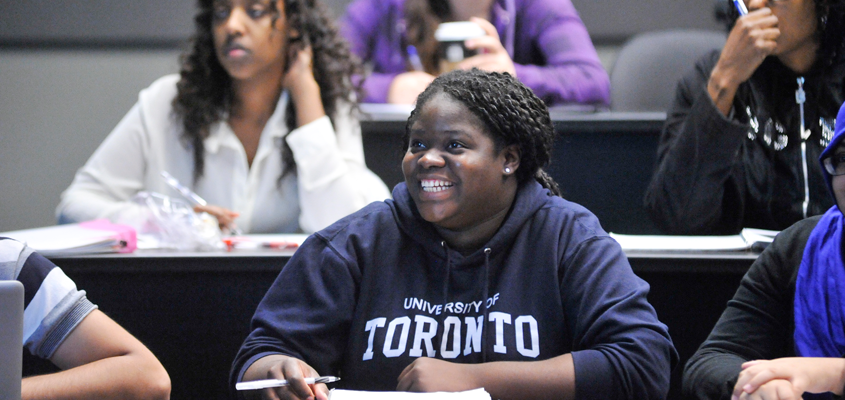 It’s understanding how physical activity moves you, changes you, how it challenges us as individuals, and impacts us as a society.
It’s understanding how physical activity moves you, changes you, how it challenges us as individuals, and impacts us as a society.
Kinesiology studies are rooted in the physical and life sciences, the social sciences and the humanities. Discover how they combine to provide a holistic view on health, through interactions with the spectrum of human movement and physical activity including exercise, play, sport, dance and physical inactivity. By examining and critiquing what we know about health, movement and physical activity, we can address contemporary issues in society to create anti-oppressive and inclusive practices and knowledge.
The field of kinesiology spans and integrates different approaches to the study of movement and its impact on health and well-being, including:
Social Sciences
• Violence in sport and its effect on youth | Psychology
• Mental impacts of exercise and physical activity |
Health and Rehabilitation
• Sport injury research | Coaching • Achieving optimal performance in a safe, inclusive way • Athlete-centered coaching practices |
Motor Control
| Physiology
• Cardiovascular, respiratory and muscular health in response to different exercise conditions |
| Biomechanics • Mechanics of movement • Musculoskeletal health and injury prevention in the workplace and in sport |
Example undergraduate kinesiology courses at university include:
| Physical cultural studies | Sport and exercise psychology |
| Motor control and motor learning | Biomechanics |
| Movement adaptations | Exercise physiology |
Where can a Bachelor of Kinesiology Degree (BKin) take you?
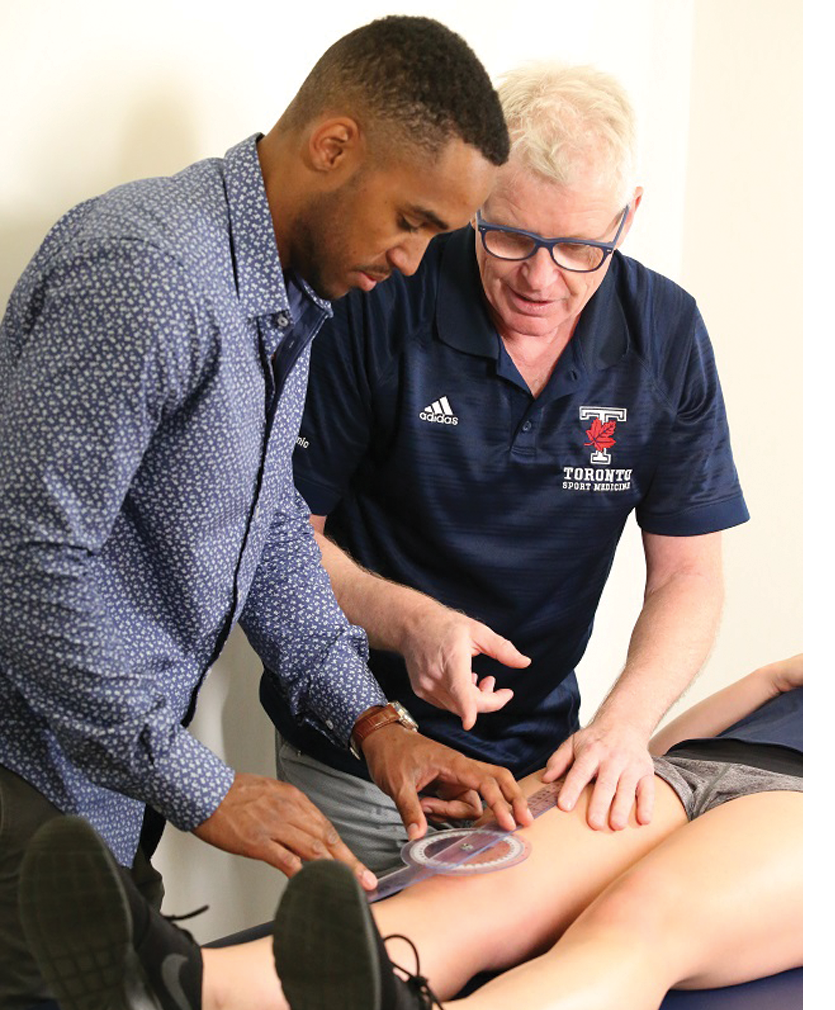
From soccer field to medicine via kinesiology
Tate Newmarch was not planning on ever going to university. He was on his way to fulfilling his dream of becoming a soccer star in France, but a serious injury put him out of the game and at a crossroads. He decided to apply to study kinesiology, attracted by its multidisciplinary nature and the aspect of sport. He was interested in following up his kinesiology degree with studies in medicine, an idea that solidified once he was in the program and conducting research with Assistant Professor Doug Richards, medical director and staff physician at U of T’s David L.MacIntosh Sport Medicine Clinic.
Newmarch has since received acceptance from U of T’s Faculty of Medicine and will continue to work with Professor Richards on the research as a medical student.
Learning through experience
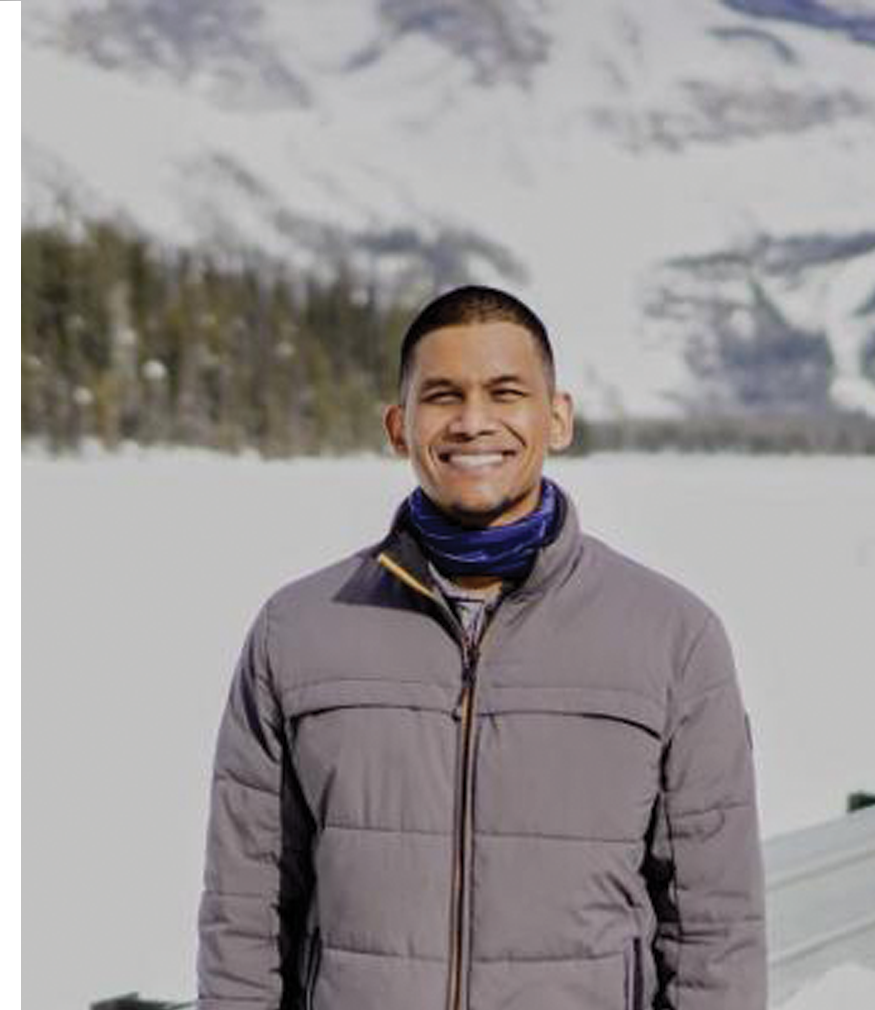
Gerome Manson was born in Trinidad and Tobago and moved to Canada with his family when he was eight years old to the west end of Toronto. Interested in sport as a youth, he originally enrolled in the Bachelor of Physical Health and Education (BPHE) at the University of Toronto with the objective of becoming a high school physical education teacher. Following his graduation, he decided to pursue a master’s degree at the renamed Faculty of Kinesiology and Physical Education (KPE), followed by a PhD.
Today, he's an assistant professor and researcher in neuromechanics and motor control at Queen’s University School of Kinesiology and Health Studies.
During his time at U of T, Manson worked as an ambassador, tour guide and community animator, and as a research assistant in two labs in KPE. He also found time to volunteer with the Summer Mentorship Program at U of T and at graduate orientation week events with the School of Graduate Studies. Outside of the Faculty, he worked as a sales rep for Hewlett Packard and as a freelance scientific writing editor when he was abroad. Through a variety of placements, part-time jobs and research experiences, Manson was able to explore different career paths.
“In all of these jobs I learned valuable skills that help me now in my role as a professor and researcher,” he says.
University of Toronto BKin graduates are well prepared to pursue a wide array of careers or to continue their studies in professional and graduate schools.
| • Health sciences • Regulated health professions • Sports administration • Outdoor leadership • Coaching • Public policy analysis • Registered kinesiology • Marketing and promotion • Clinical trials management | • Business • Non-governmental organizations • Education • Physical activity and health equity and advocacy • Recreation and fitness industry • Public health • Academia • Event management • Ergonomics |
Questions? Please contact us by email at reachahead.kpe@utoronto.ca.
